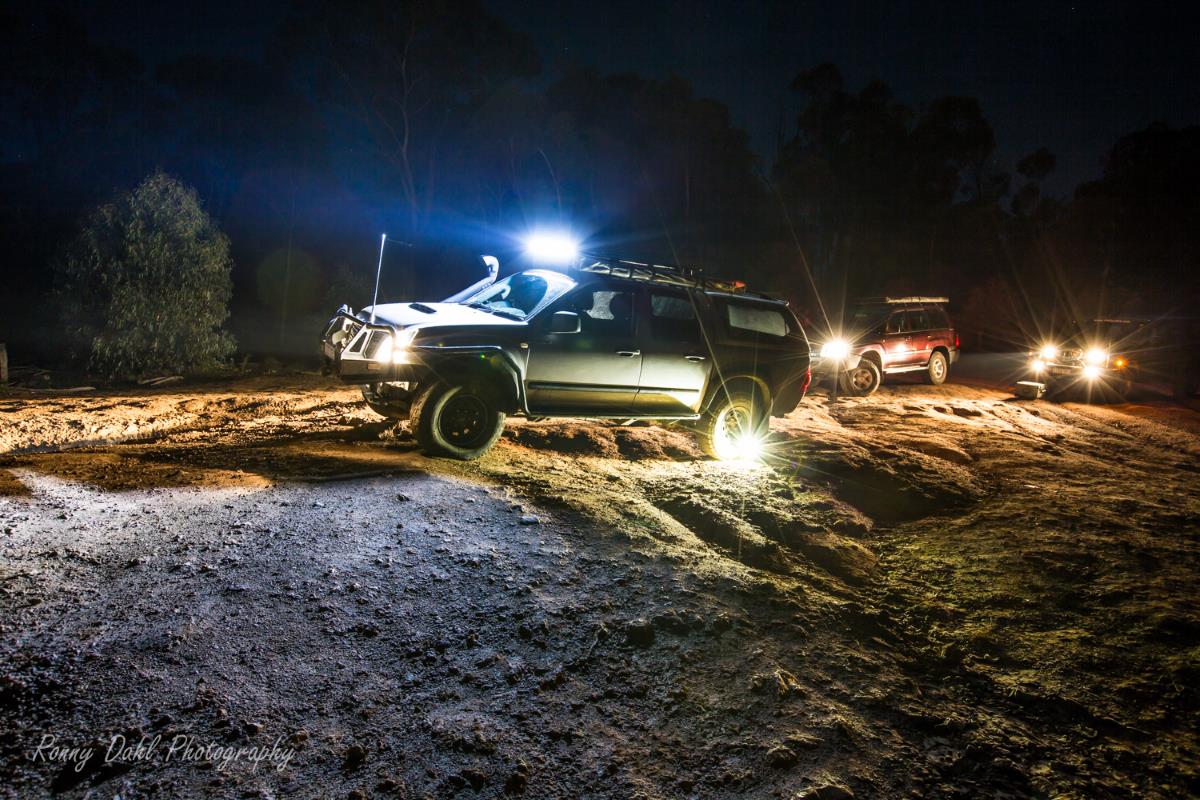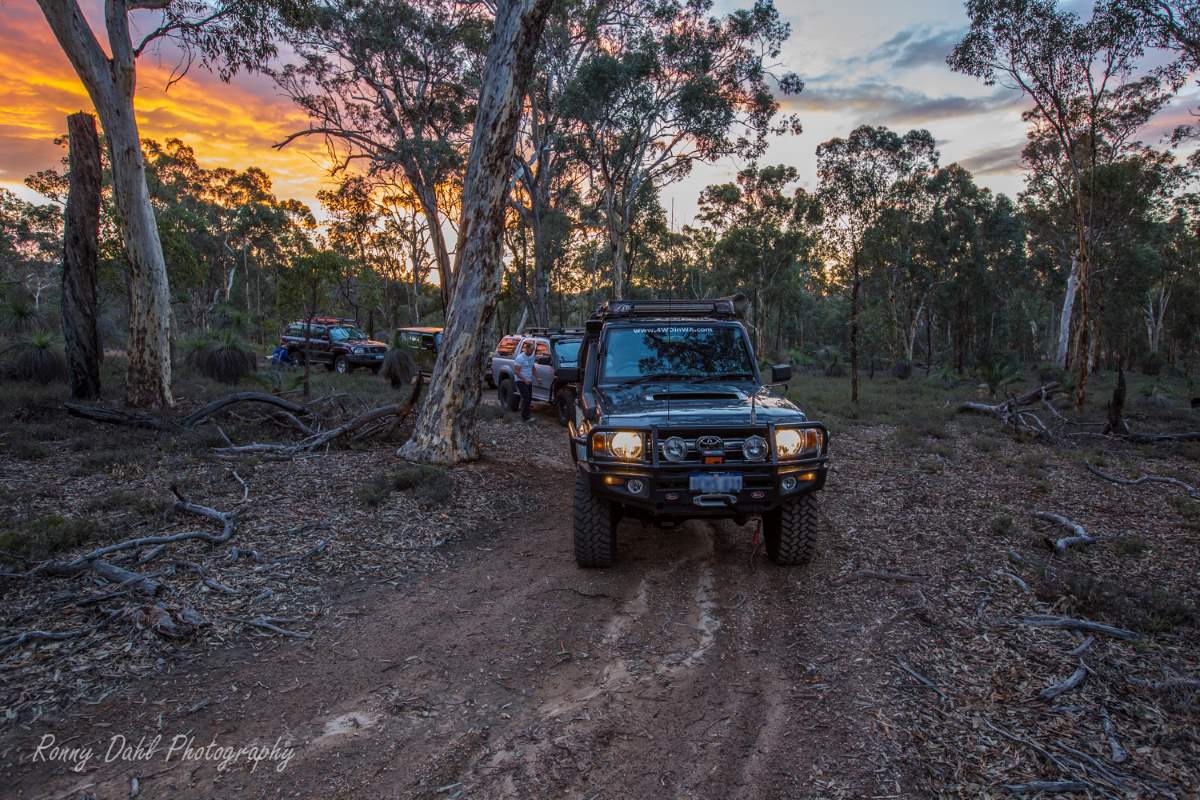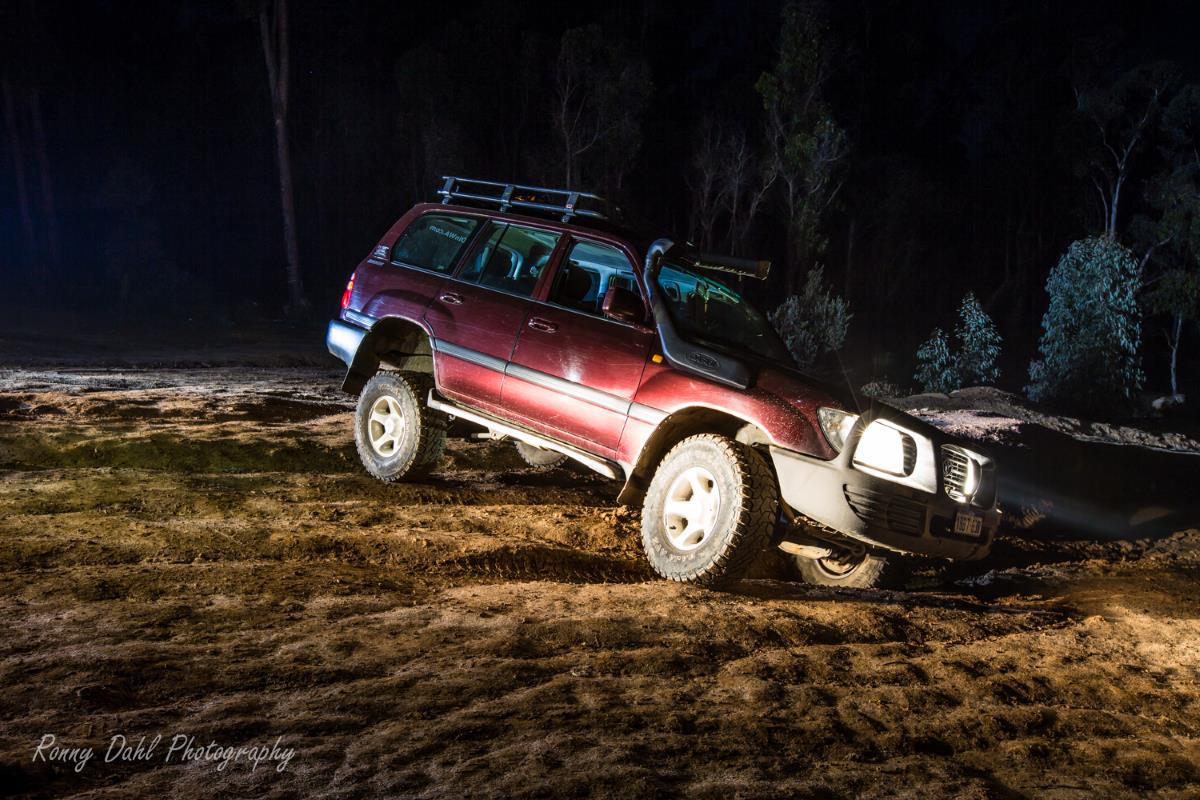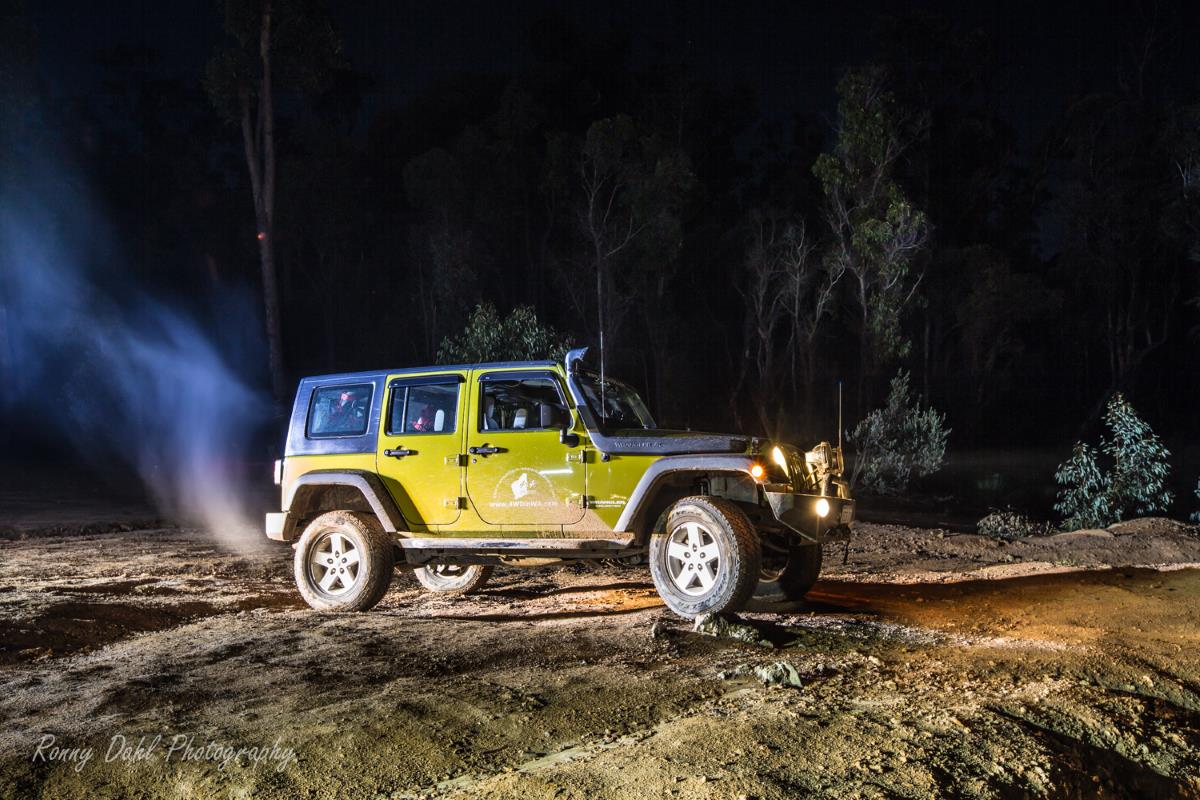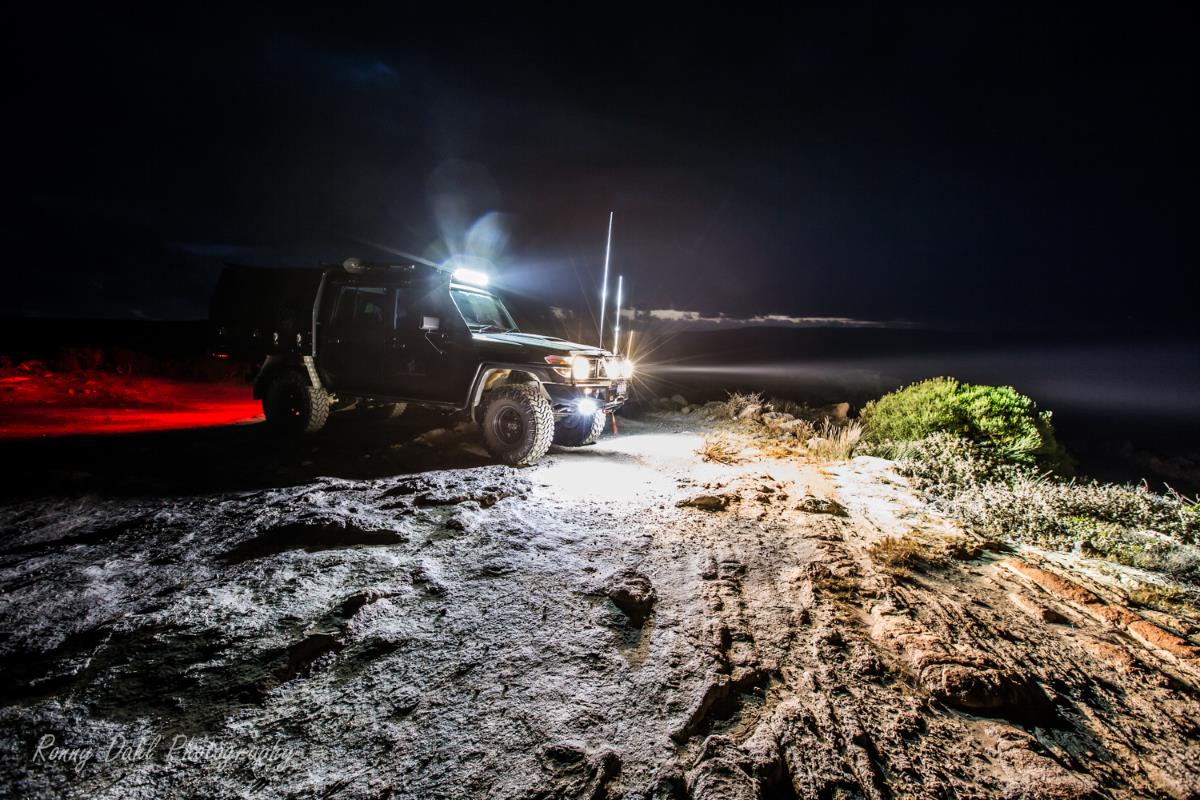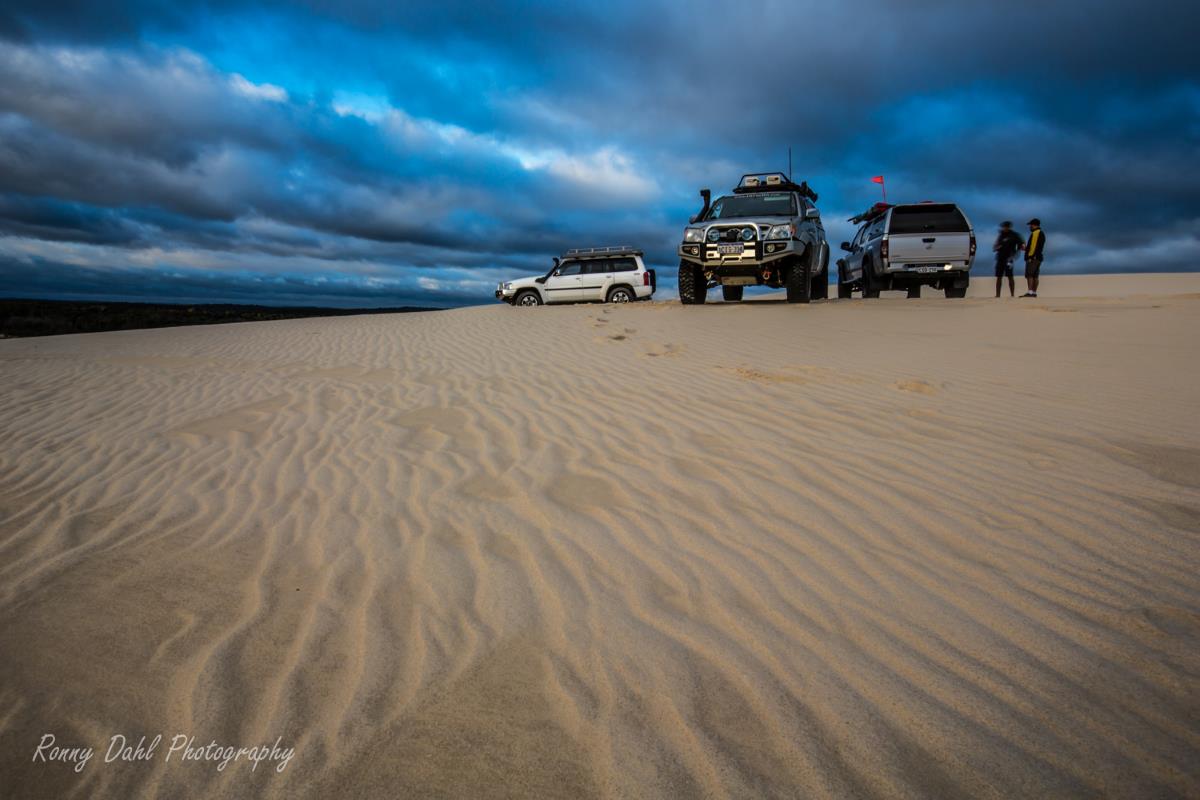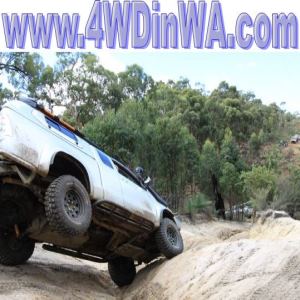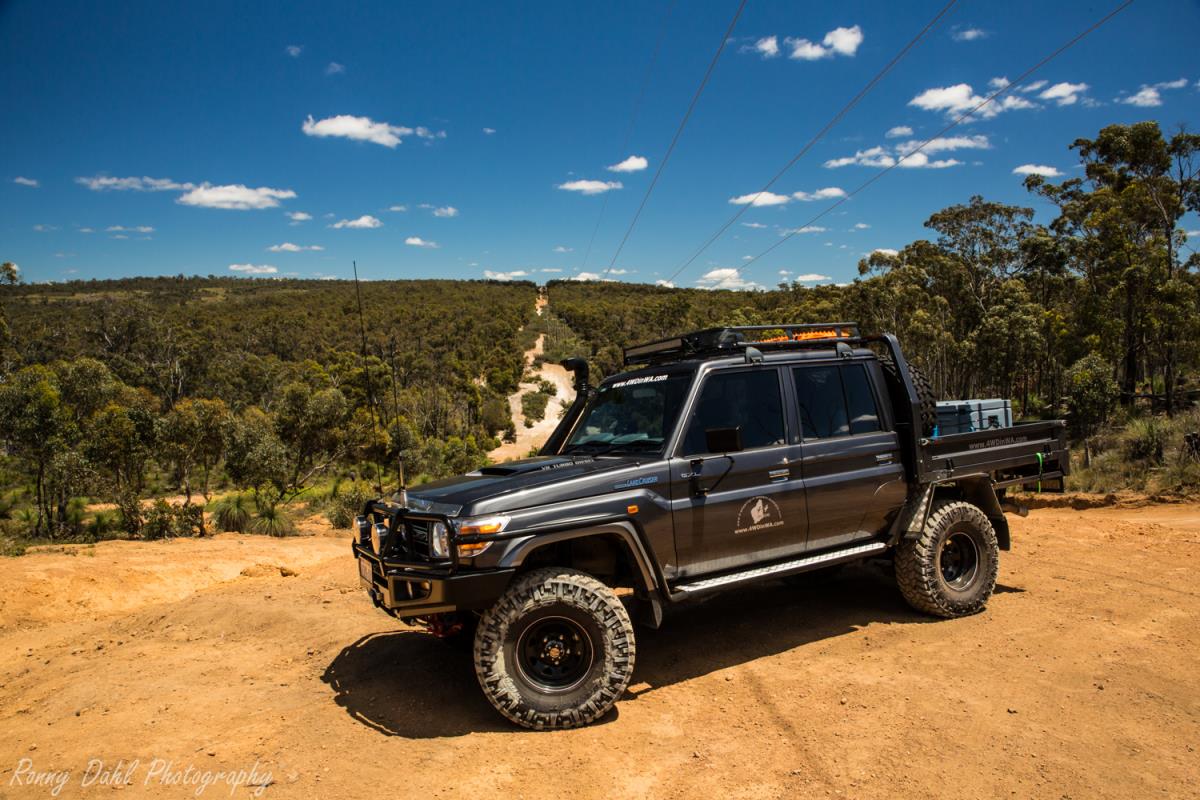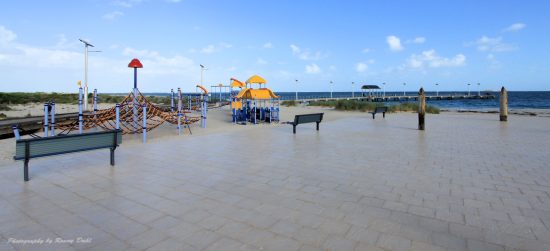
Driving at night, Off-Road:
So far we have done a fair share of driving at night Off-road, on beaches, coastal tracks, bush tracks and sand dunes. Just recently we did the Powerline track with plenty of slow going tricky sections.
I struggle to put the experience in a few simple words. At night you really get tunnel vision and all your senses are intensified, everything looks different and vision is only where the lights are shinning, this gives a slight eerie feel.
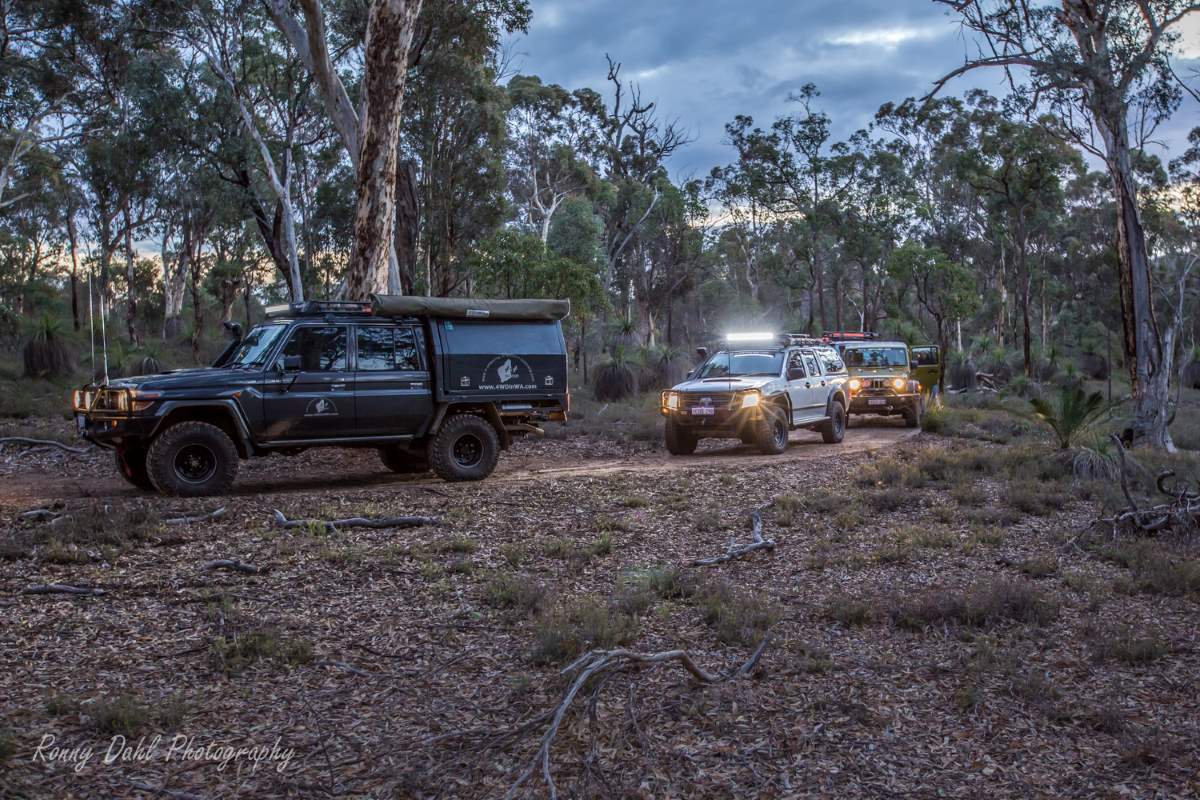
Driving at night off-road is all about lights, lights, more lights and your mate’s lights!
Having high beams and fog lights is just not enough! Spot lights do help but nowhere near as much as LED light bars with a spreading patterned light setup. Now, you won't need to have a bucked load of lights to drive at night but it will make it far easier to avoid hitting something. If just one or two vehicles in the convoy have a light bar it can help everyone immensely.
Don't be fooled by shadows.
That shadow on the other side of that little hump could be a drop off, pot hole, a deep rut or anything else; this is why multiple lighting options are key.
Recent off-roading / Driving at night:
Most recently we were at the Mundaring Powerlines for the first time driving at night.
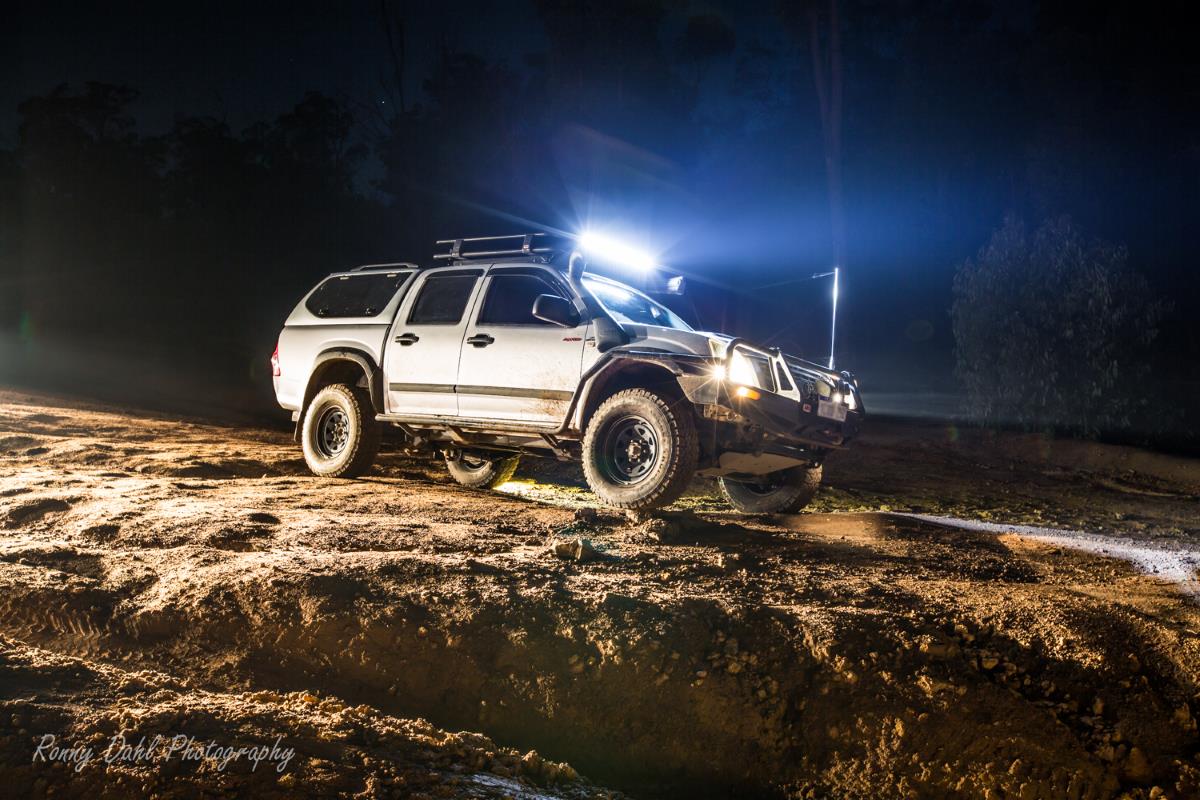
For those who don't know what the Powerlines are like, well its best described as a 4wd playground.
A place to test a 4WDs limit and your skills as far as you wish.
This place at night is completely different and so are all other areas.
With a place like the Powerlines extreme caution is paramount, one wrong move and anything could happen. Holes and drop offs are extremely hard to see in the dark.
Night driving, 105 series LandCruiser.
Jeep Wrangler at night on the Powerline.
Which lights and why?
If really wanting good 4WD lights setup, it really needs to cover all situations of off-roading. The following situations will detail big differences and light requirements;
Beach driving at night:
When
beach driving the shoreline is rarely visible when driving along the beach,
unless you are driving close to the water.
A LED light bar will help provide
spread but still won't really give you good visibility of the shoreline.
The Land Cruiser at night along the Bremer Bay coastline.
Spot lights will provide good distance which is pretty
important when driving on the beach. This will provide early warning if the
beach gets narrower before you get there and possibly end up in strife. It's
also great for spotting fishermen from a distance on those hard beaches that
allow for faster speeds.
Rock lights won't help much at all with
beach driving.
Rear lights (reverse/work lights) are
great for beach driving when bogged as you can actually see behind the vehicle
when digging etc.
Also great for vehicle to vehicle recoveries. Most recoveries are done with a
vehicles front facing another vehicles rear, lighting up both vehicles works
wonders!
Adjustable lights mounted to the roof
rack will be ideal for keeping an eye on the shoreline (providing you are close
or the light is quite powerful), also very useful for fishing!
Sand dunes, driving at night:
Sand
dunes are dangerous at night (that's an understatement); I personally have
driven sand dunes 3 times in very low light. The best way to tackle sand dunes
at night or low light is to follow your own previous tracks and have a very good
memory as remembering in reverse is not always as easy. Be very careful as some
previous steep descents are now "steep climbs"! Driving sand dunes in
the dark which were not travelled earlier in the day is highly not recommended,
even with a good setup of 4x4 lights!
LED light bars, spot lights and work
lights are required in my opinion!
Rock lights won't assist much at all
with sand dunes!
Adjustable lights will be a great
addition for this kind of night driving situation.
Sun has just set deep in the sand dunes, time to return before it gets dark.
Bush & coastal tracks at night (including rock crawling):
In my opinion the hardest part about night driving along bush tracks is turning around on the track or doing 3 point turns (in the cruiser it's more like a 10 point turn!) and reversing.
Also very noteworthy is the fact of over shooting
side tracks or completely missing side tracks is common as all you can see is
right in front of you! Unless you know where exactly you are going or know the
area very well turns onto hidden tracks will be missed or at the very least
over shot at speeds more than 30kph.
Bush tracks benefit from every light possible.
Coastal
tracks
are very much the same as the bush tracks except for having more visibility as
there are rarely any trees along the coast, also the is the extra danger of
sand dunes which show no signs of recent tracks. They must be carefully checked
as recoveries are very hard at night also making them tougher to do safely.
Spot lights:
Great for slow tight tracks and must have for gravel roads to help prevent animal strikes!
LED light bars:
Superb
for night bush tracks and gravel roads, any wildlife on the edge of the track
or road will be visible. The LED light bars also really help lighting up the
track ahead very well for 30-70m depending on the strength/lumens the light bar
produces.
Rock lights:
Great for those slow tricky sections such as ruts, pot holes, fallen trees and
of course rocks! They can assist both the driver and spotters.
Rear lights (reverse/work lights):
Well as I mentioned before reversing is pretty though in the bush at night on
those tight tracks so rear lights will assist immensely. Also great for
recoveries as most recoveries are done with a vehicles front facing another
vehicles rear, lighting up both vehicles works wonders!
Adjustable lights:
Great option for any situation i.e. Recovery, slow tricky section and assisting
in finding side tracks.
Recent Articles
-
Goodyear wrangler MTR
Jun 28, 24 10:27 PM
I have these on my defender 90 and my Dmax Ute. I get around 100,000 km out of them. I tried AT for one change and went back to the MTs. They are gol -
4x4 off road tracks 0 to 250 km from Perth
Nov 21, 23 07:40 PM
On this page we cover 4x4 off road tracks within a 250 km radius from Perth... -
4 Wheeling Around Jurien Bay.
Nov 21, 23 07:35 PM
Jurien Bay 4x4 tracks info and general information about the area...
- Home
- Off Road Driving at night
Leave Driving At Night And Go 4 Wheeling In Western Australia.
